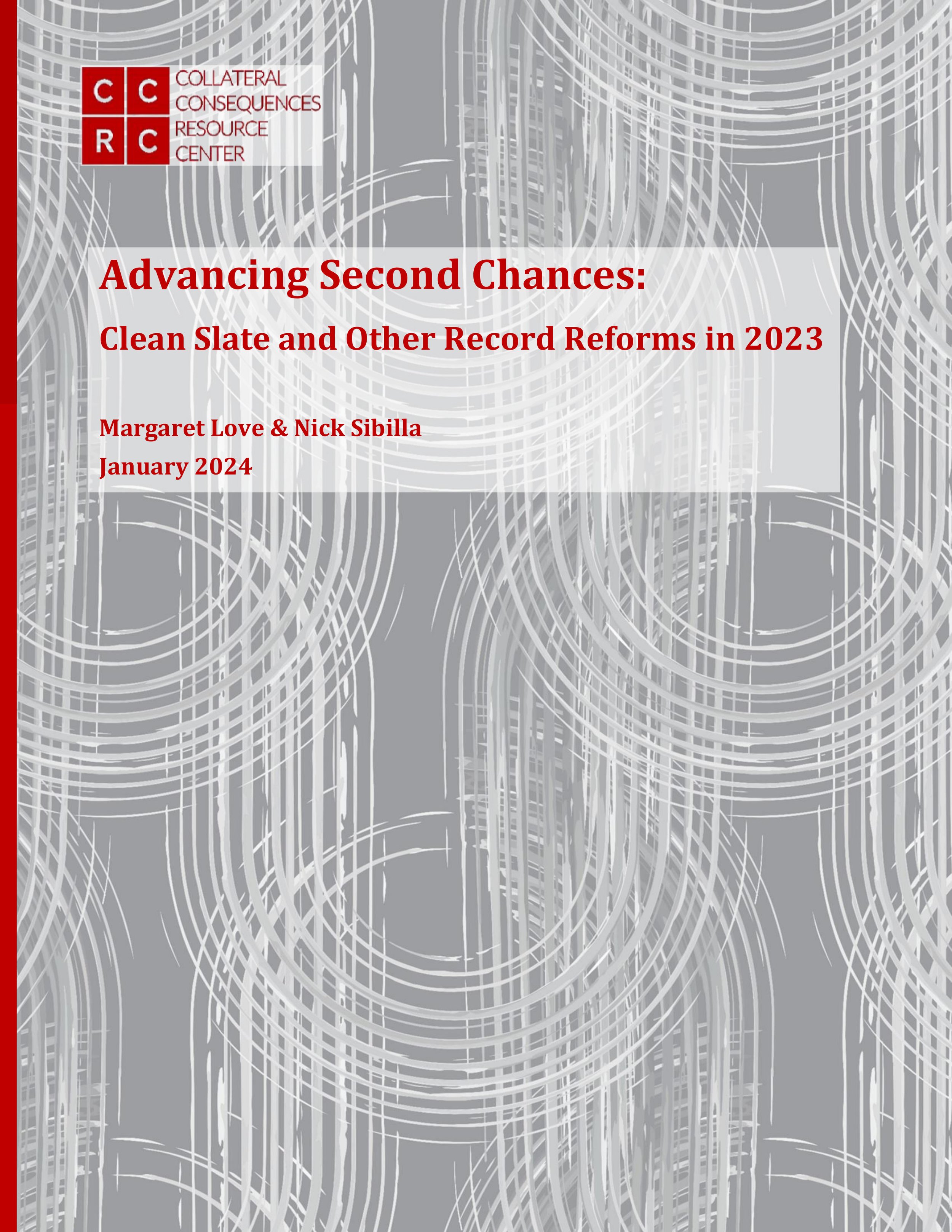By Margaret Love & Nick Sibilla
At the beginning of each year since 2017, CCRC has issued a report on legislative enactments in the year just ended, describing and evaluating new laws aimed at reducing the barriers faced by people with a criminal record in the workplace, at the ballot box, and in many other areas of daily life. These annual reports have documented the steady progress of what our report three years ago characterized as “a full-fledged law reform movement” aimed at restoring rights and dignity to individuals who have successfully navigated the criminal law system. This modern law reform movement is grounded in and inspired by the circumstance that almost a third of adults in the United States now have a criminal record, which entangles them in a web of legal restrictions and discrimination that consigns them to a permanent second-class citizenship. It reflects a public recognition that the “internal exile” of such a significant portion of society is not only unsafe and unfair, but it is also profoundly inefficient. Last year we reported that the legislative momentum had slowed somewhat, and this year it has slowed still further. Only a handful of states enacted significant new laws in 2023, most in the form of new record-clearing schemes. We attribute this slowdown in part to how much has been accomplished in legislatures across the country in the past seven years in dealing with the basic rights of those who have successfully navigated the criminal law system. For example, more than half the states now allow people with a felony conviction to vote unless they are actually incarcerated. And, almost every state has taken some steps to ensure that employers and licensing agencies do not discriminate against people with a criminal history. Most states have also taken steps to limit public access to some criminal records. It is especially gratifying that just since we published our Model Law on Non-Conviction Records in 2019, a dozen states have adopted its recommendation that records of dismissed charges be automatically expunged. It remains to be seen whether the coming year will mark a return to the torrid pace set by legislatures across the country between 2018 and 2022, when more than 500 new record reforms were enacted by all but two states. Last year’s report borrowed its title (“The Frontiers of Dignity”) from the Basic Law adopted by the Federal Republic of Germany after World War II, which declared that “Human dignity shall be inviolable. To respect and protect it shall be the duty of state authority.” The report’s introduction noted that most European countries incorporate this foundational premise, as well as a concern for individual privacy, into their treatment of criminal records, by making them largely unavailable to the public and by limiting how they are used to deny rights and opportunities. In part because American legal systems are not similarly grounded in respect for dignity and privacy, our progress toward a fair and efficient criminal records policy has been slow and uneven. Yet it has been steady, animated in recent years both by a concern for racial justice and by economic self-interest. This report, like our past annual reports, attempts to capture this steady progress toward recognizing the worth and dignity of the millions of Americans whose past includes a record of arrest or conviction.
Arnold, MO: Collateral Consequences Resource Center 2024. 25p.


